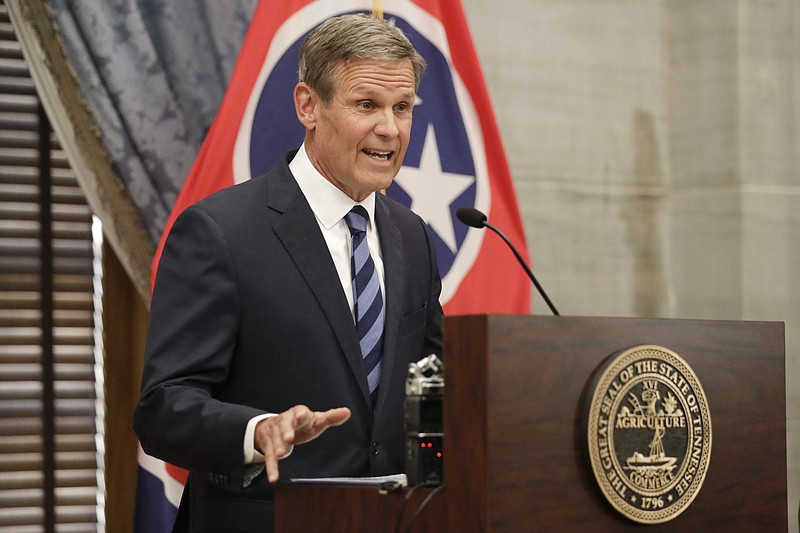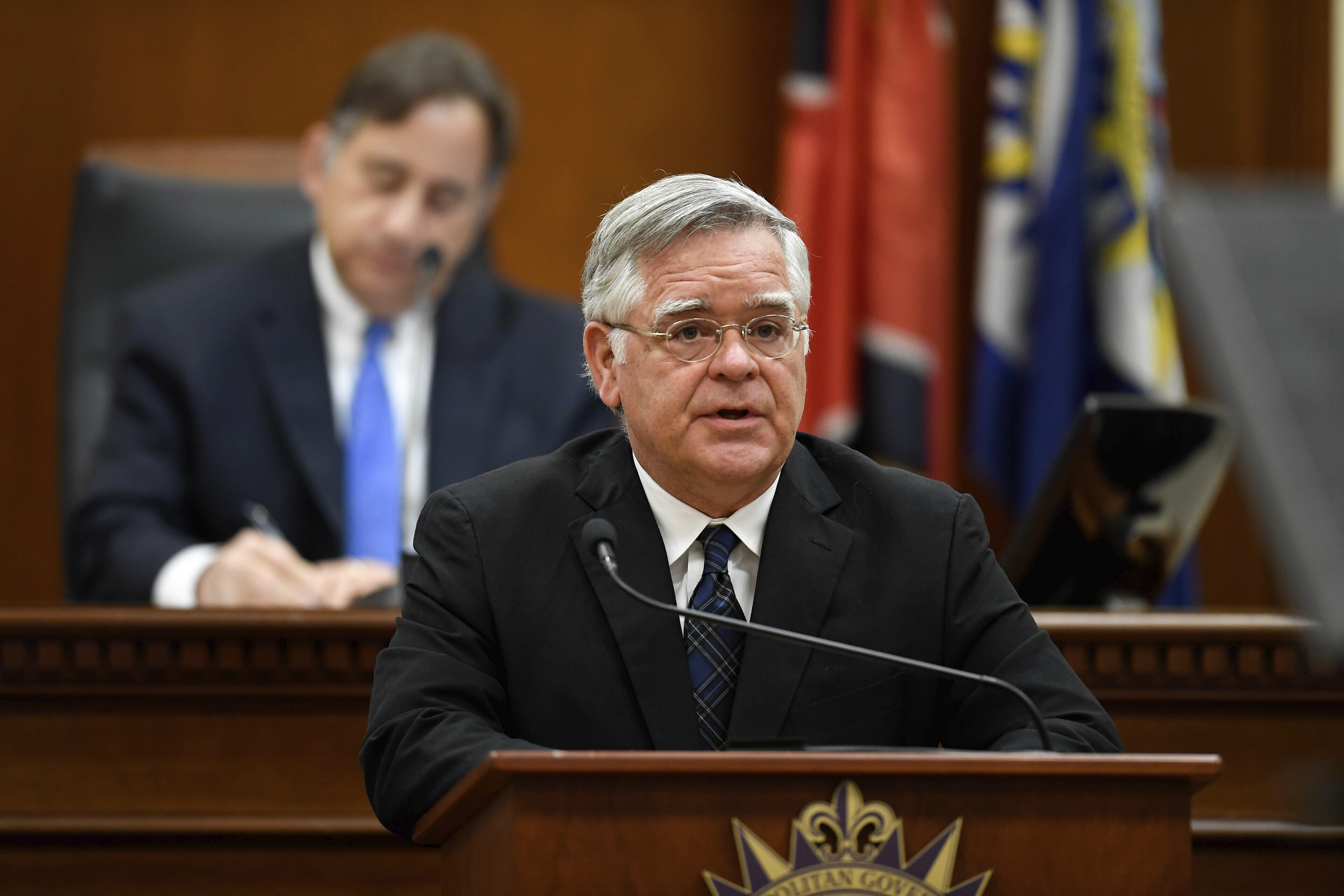NASHVILLE, Tenn. (AP) - Tennessee Gov. Bill Lee on Thursday criticized Nashville's use of coronavirus relief funds as the city seeks additional financial help in its response to the pandemic.
Lee chided Nashville Mayor John Cooper for not prioritizing small businesses and urged the city to focus remaining dollars on economic relief for businesses. The letter did not directly deny the city's request, but instead Lee said he would pass the city's request along to the members of the state's Financial Stimulus Accountability group - a panel in charge of how federal pandemic relief funds are allocated.
Cooper had reached out to the Republican's administration earlier this month stating that Nashville needed $82.6 million - noting the money was critical to supporting the city's tourism industry, which has been crippled by the pandemic.
Cooper and Lee have differed drastically as they've navigated the coronavirus pandemic. Lee was one of the first governors to reopen businesses back in April and has promised he has no plans to issue such restrictions again. He's also resisted calls to issue a statewide mask mandate.
Meanwhile, Nashville has been slow to reopen businesses, arguing that strict regulations were needed to in order to manage the virus outbreak in a tourist-heavy city. Nashville's city council has also approved a 34% property tax hike in order to keep the city's finances stable during the economic downturn caused by the pandemic. This has sparked outcries from Republican groups unhappy with the city's decision to raise taxes during an economic downturn.
"This concern is heightened by the ongoing challenges ahead for Nashville business owners who have already endured some of the most restrictive limitations on commercial activity, as well as a recently enacted property tax increase," Lee added.
A spokesman for Cooper's office did not immediately return a request for comment but in his Sept. 11 letter to Lee, the mayor argued that Nashville's recovery would "determine the trajectory of Tennessee's economic recovery."
To date, Nashville has been directly designated $121 million of coronavirus relief funds from the federal government and spent nearly $93 million of that amount. According to Lee, the city has also benefited from "$2.5 billion of the $13 billion in Tennessee's COVID9-related response funds."
"Indeed, I must share my deep concern that, of the $93 million in Coronavirus Relief fund dollars spent to date by your administration, only $5.7 million has been budgeted for relief to businesses," Lee wrote in his Thursday letter.
In other virus-related news, Tennessee will soon allow long-term care facilities to resume visitation after loosening some of its coronavirus restrictions.
Previously, nursing homes and other facilities were only allowed to have some visitors if the facilities were in counties where the disease was stable.
However, starting Oct. 1, long-term care facilities will be allowed to conduct outdoor and limited indoor visits as long as they've had no new case of the virus in two weeks.
"The health and safety of vulnerable Tennesseans, especially our long-term care residents, remains our top priority, and our comprehensive and persistent efforts to protect this population from COVID-19 have saved lives," said Tennessee Health Commissioner Lisa Piercey in a statement. "It's time to reunite residents and their families in a safe and disciplined manner so we can better balance the physical and emotional needs of older Tennesseans."
Senior citizens are considered to be at high risk of dying from COVID-19. Yet at the same time, officials have raised concerns about the elderly spending months in isolation and having to manage loneliness while away from loved ones.
The Department of Health also announced that nursing homes may also be allowed to resume communal dining and other social activities, including visits from barbers and beauticians.
Meanwhile, if facilities go 28 days without reporting a new case of COVID-19, they can then allow "essential caregivers" to visit residents. These are people close to residents who can help with feeding, bathing and other close-contact activities.
In Tennessee, more than 530 nursing home residents have died from COVID-19 across 412 facilities- making up about 25% of the state's death total.

